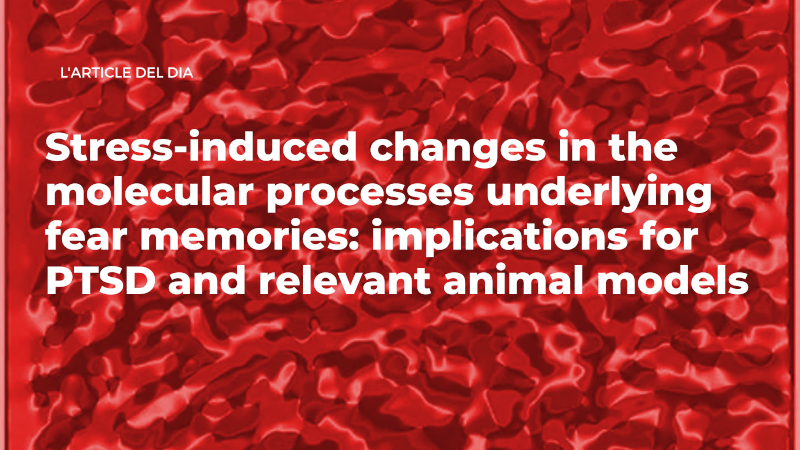Latest Advances in Understanding How Traumatic Memories Are Processed
A review published in Molecular Psychiatry by ICREA Professor Dr. Raül Andero delves into the intricate mechanisms underlying fear memory, offering a comprehensive analysis that integrates findings from both human and animal studies. Read the publication

A review published in Molecular Psychiatry by ICREA Professor Dr. Raül Andero delves into the intricate mechanisms underlying fear memory, offering a comprehensive analysis that integrates findings from both human and animal studies. This in-depth review explores the molecular foundations that govern fear conditioning, its extinction, and recall, with a particular focus on individuals affected by post-traumatic stress disorder (PTSD).
Dr. Andero examines the crucial role of hormones such as estradiol, cortisol, and corticosterone, emphasizing their distinct effects on fear memory in both healthy individuals and those with PTSD. Additionally, the review highlights genetic and epigenetic factors involved in fear memory alterations induced by stress, including the FKBP5 system, PACAP-PAC1R, the endocannabinoid system, and the TrkB-BDNF system.
The article underscores the complexity of these processes and explains how exposure to traumatic stress can significantly alter them. Furthermore, Dr. Andero advocates for considering sex differences in research, stressing the need to include both men and women to gain a more comprehensive understanding of these dynamics.
This review opens new avenues for PTSD research, suggesting that modulating specific molecular pathways could pave the way for novel treatments for stress-related disorders. It also posits that many fear memory studies conducted on healthy subjects may not be directly applicable to PTSD patients. Therefore, to improve PTSD treatment strategies, further research is needed using patient studies and specific animal models that accurately reflect PTSD symptomatology in both males and females.